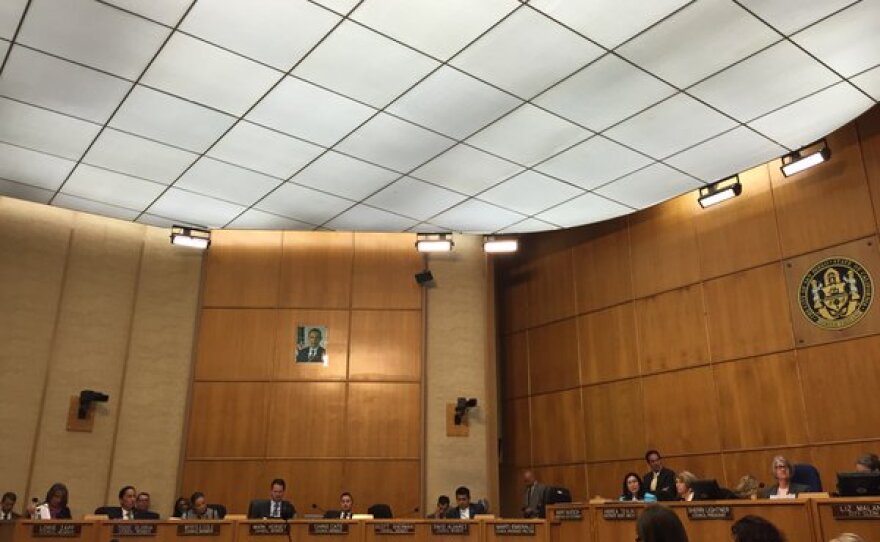The San Diego City Council on Monday approved directing the City Attorney’s Office to draft ballot language on eight potential new measures for the November ballot, from taxing marijuana to raising money for firehouse construction to changing how city elections are run.
The council voted 7-2 to approve a ballot measure that would impose an 8 percent tax on gross receipts for businesses that sell marijuana.
That’s only if recreational marijuana is given the go-ahead by state voters in November. Medical marijuana is already legal in California and wouldn’t be taxed.
The tax money would be used for licensing and enforcing marijuana businesses, said Councilman Mark Kersey, who proposed the measure. He said if the state approves recreational marijuana, it will create “an unfunded mandate” that the city will have to recoup.
“We will be the ones that have to deal with law enforcement, code enforcement, other public safety measures,” Kersey said. “We cannot ask our taxpayers to divert money from other things they care about to pay for this.”
The council also approved a controversial ballot measure that would change San Diego’s elections. The vote was 5-4, with the five Democrats voting yes.
If voters pass it, candidates could no longer win outright in June elections by getting more than 50 percent of the vote.
Mayor Kevin Faulconer, Councilmen Mark Kersey and Scott Sherman, and Councilman-elect Chris Ward won their elections outright last month.
The council's four Republicans railed against the measure. They said it was rushed and questioned the motivations behind it.
“This isn’t half-baked. It’s not even in the oven,” Councilwoman Lorie Zapf said.
The council also voted 6-3 to approve a firehouse bond measure proposed by Councilwoman Marti Emerald, who said it would raise property taxes to generate $205 million to construct around 20 stations that were called for in a consultant's report.
Emerald said the average homeowner would pay $5 for every $100,000 in assessed value. That's around $25 a year, she said, based on the median price of a home in San Diego.
She said the city is building a fire station every five years. At that rate, it would take nearly a century to complete the number currently needed. Funding from her bond measure would instead allow the stations to be built in a decade.
Other measures the council sent to the City Attorney’s Office are:
• Changing the City Charter to make it easier to remove an elected official from office.
• Requiring the city attorney to be a member of the California State Bar in good standing with a minimum of 10 years of experience practicing law in California.
• Extending the city’s ability to use revenue from leases in Mission Bay Park for 30 years and increasing the portion that can be spent on upgrading other regional parks.
• Requiring all ballot measures to go before voters in November general elections.
• Requiring public disclosure of city business conducted by employees on their personal electronic devices. The measure would first require approval from all city unions. An alternate proposal that would immediately go into effect for non-union employees was defeated.
The council members directed the city attorney to conduct legal analysis and draft ballot language on each item. Final decisions on whether to actually place the proposals on the general election ballot will come later.
Those that eventually go before voters would be in addition to 17 state propositions, plus one on a stadium for the Chargers and another that would affect the future of tourism and set aside the Qualcomm Stadium site for educational and park use.
The San Diego Association of Governments will also ask voters to increase the sales tax by a half-cent to pay for infrastructure projects.






